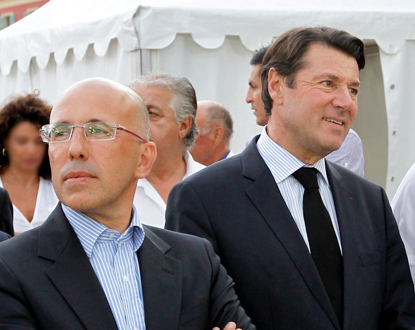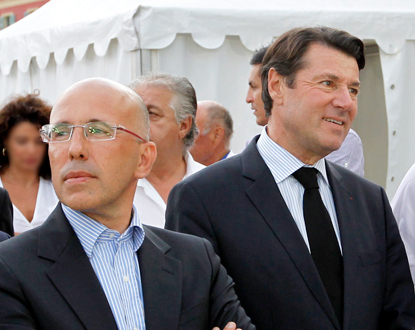The Valls government’s crisis with its resignation and Arnaud Montebourg’s stance, who has officially announced his departure and his distancing from the reformist policy recently proclaimed by the President of the Republic, were at the center of yesterday’s news.
 In fact, after the statements and proclamations to the press of the man who will, from today, be the former Minister of the Economy, it is clearer that his speech last Sunday, during the Festival of the Rose in his Burgundian homeland, was just a well-prepared act in a pre-written script: Provoking a government crisis to reclaim his freedom of speech… and action.
In fact, after the statements and proclamations to the press of the man who will, from today, be the former Minister of the Economy, it is clearer that his speech last Sunday, during the Festival of the Rose in his Burgundian homeland, was just a well-prepared act in a pre-written script: Provoking a government crisis to reclaim his freedom of speech… and action.
One does not self-proclaim, all modesty aside, the new Cincinnatus without having thought about it… and Arnaud Montebourg is going to position himself as a unifier of supporters of “an alternative policy” and can, when the time comes (primary for the 2017 presidential?) play his all or nothing.
A dangerous game but one that could prove fruitful: In fact, wouldn’t he be a candidate with a youthful and media-friendly profile, a hero of the far left in the name of economic and social patriotism (even if it is not very clear what that means, but it sounds good to people’s ears!)?
In yesterday’s chaos, politicians from the Alpes-Maritimes contributed to the confusion by showing that, if on the left everyone emphasizes their ego and professional career, the local right is not going beyond demagogic speeches either.
In fact, in the statements of each, we also find their tactical differences.
“I ask the Prime Minister to gather parliamentary groups to find an agreement on 6 national safeguard measures.”
Thus Christian Estrosi – who already dons the attire of a candidate in the right-wing primary for the presidential election? – envisions an institutional outcome to the government crisis by proposing a “parliamentary pact” to the Prime Minister to get France out of the crisis.
The measures mentioned*, beyond some recurrent battle horses of the Mayor of Nice that always return, are impressive and have a good impact in terms of statement.
However, the implementation of economic measures, for which the measure is not specified, remains marked by a question mark regarding the cost for the state budget as well as their financing, but, obviously, the positive point for its author is not there but in their appealing cliché.
As for Eric Ciotti, UMP deputy close to François Fillon, he talks about a major political crisis: “Perhaps unprecedented under the Fifth Republic. Does the government still have the majority? We will see very soon in the National Assembly since I imagine that this government will exclude the rebellious ministers who will feed a form of opposition that already included the communists and the Greens.”
In the name of the local UDI, Rudy Salles is even more laconic: for him, President Hollande’s and the Valls government’s policy is in full bankruptcy and he demands the dissolution of the National Assembly and a recourse to voting.
The mayor of Antibes, Jean Leonetti, is more moderate, arguing that the exclusion of rebellious ministers is a logical consequence of their attitude, which borders on insubordination.
Just for memory, it’s worth recalling that France’s public deficit increased from 2.7% of GDP in 2007 to 7.5% in 2009, before decreasing to 7.1% in 2010, then to 5.2% in 2011. In 2012, it was 4.8, and in 2013 it was 4.3. It is estimated to be around 4% this year.
As they say… The problems are neither from today nor yesterday…
Photo Credit: DR



